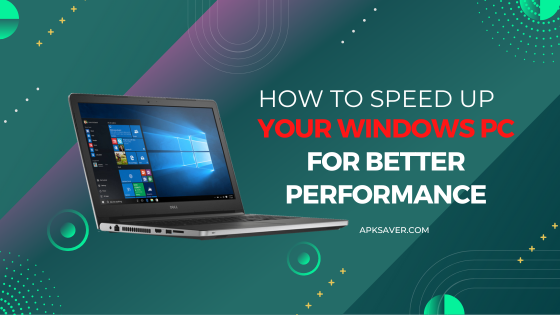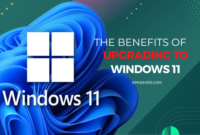“Is your Windows PC lagging and slowing you down? Don’t let a sluggish computer hold you back any longer! In this post, we’ll give you the inside scoop on how to speed up your Windows PC for better performance. From cleaning up your hard drive to optimizing system settings, these tips and tricks will have your computer running like it’s brand new in no time. So grab a cup of coffee, sit back, relax, and get ready to rev up that old machine!”
What is a Windows PC?
A Windows PC is a computer that uses the Windows operating system. The Windows operating system is made by Microsoft and is the most popular operating system for personal computers. More than 1 billion people use a Windows PC.
How to Speed Up Your Windows PC
If your Windows PC is running slower than it used to, there are a few things you can do to speed it up. Here are some tips:
1. Close unnecessary programs and windows.
2. Delete temporary files and clean up your disk space.
3. Defragment your hard drive.
4. Adjust your power settings to improve performance.
5. Update your drivers and install the latest Windows updates.
6. Run a virus scan to check for malware or viruses that could be slowing down your PC.
The Benefits of a Faster Windows PC
A faster Windows PC can mean the difference between a good user experience and a great one. Here are some benefits of having a faster Windows PC:
-Faster startup time: A faster PC will boot up quicker, so you can get to your work or play sooner.
-Improved multitasking: A faster PC can handle more tasks at once without slowing down, so you can be more productive.
-Better gaming performance: Games will run smoother and look better on a fast PC, giving you an immersive experience.
-Faster file transfers: Moving files around will be quicker on a faster PC, so you won’t have to wait as long for them to copy over.
How to Maintain Good Performance for Your Windows PC
To ensure your Windows PC is performing at its best, there are a few things you can do on a regular basis:
1. Keep your operating system and software up to date. Outdated software can lead to decreased performance, so it’s important to keep everything updated. You can typically set your software to update automatically.
2. Delete any unnecessary files and programs. Over time, your computer can become cluttered with files you no longer need and programs you never use. Deleting these items can help improve performance.
3. Defragment your hard drive regularly. This process rearranges the files on your hard drive so they’re easier for the computer to access, which can speed up performance. You can defragment your drive manually or set it to defragment automatically on a schedule.
4. Clean up your desktop. Having too many items stored on your desktop can slow down performance, so it’s a good idea to clean it up every once in awhile. You can move items to other folders or delete them entirely if you don’t need them anymore.
5. Close unused programs and tabs. When you have multiple programs and tabs open, it puts strain on your computer and can slow things down significantly. So, be sure to close anything you’re not using before opening new programs or tabs.
Conclusion
In conclusion, speeding up your Windows PC doesn’t have to be complicated or difficult. By following the tips outlined in this guide, you can easily improve the performance of your computer and keep it running smoothly for years to come. With just a few simple steps, you can make sure that your Windows PC is running at its optimal speed and performance level. Now go enjoy all the improved features of your newly optimized system!



